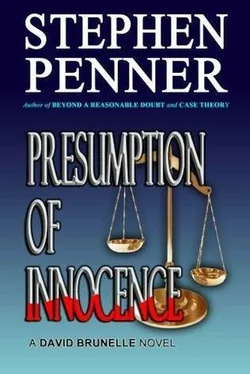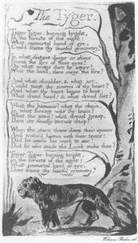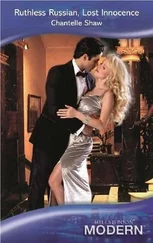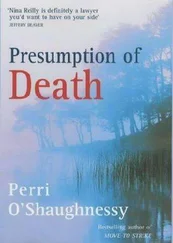Stephen Penner - Presumption of Innocence
Здесь есть возможность читать онлайн «Stephen Penner - Presumption of Innocence» весь текст электронной книги совершенно бесплатно (целиком полную версию без сокращений). В некоторых случаях можно слушать аудио, скачать через торрент в формате fb2 и присутствует краткое содержание. Год выпуска: 2012, Жанр: Триллер, на английском языке. Описание произведения, (предисловие) а так же отзывы посетителей доступны на портале библиотеки ЛибКат.
- Название:Presumption of Innocence
- Автор:
- Жанр:
- Год:2012
- ISBN:нет данных
- Рейтинг книги:5 / 5. Голосов: 1
-
Избранное:Добавить в избранное
- Отзывы:
-
Ваша оценка:
- 100
- 1
- 2
- 3
- 4
- 5
Presumption of Innocence: краткое содержание, описание и аннотация
Предлагаем к чтению аннотацию, описание, краткое содержание или предисловие (зависит от того, что написал сам автор книги «Presumption of Innocence»). Если вы не нашли необходимую информацию о книге — напишите в комментариях, мы постараемся отыскать её.
Presumption of Innocence — читать онлайн бесплатно полную книгу (весь текст) целиком
Ниже представлен текст книги, разбитый по страницам. Система сохранения места последней прочитанной страницы, позволяет с удобством читать онлайн бесплатно книгу «Presumption of Innocence», без необходимости каждый раз заново искать на чём Вы остановились. Поставьте закладку, и сможете в любой момент перейти на страницу, на которой закончили чтение.
Интервал:
Закладка:
"Emily Montgomery's death was a homicide."
Although expected, this response elicited a confirmatory ripple through the jury. But Brunelle knew it wouldn't be enough. There was no real question that it was a homicide. 'Homicide' just meant being killed by someone else. Self-defense and lethal injection are homicides too, but they're legal. The real question was whether it was murder- unlawful homicide. And if so, did Karpati do it?
"Thank you, doctor," Yamata continued. "So the manner of death was homicide. What was the cause of death?"
"The cause of death," Kat answered, "was cardiac arrest brought on by an acute loss of blood."
"And were you able to determine what caused this loss of blood?"
"Yes," Kat replied to the attorney, then turned to tell the jury, "The only injury to the body was a laceration to the neck, impacting the carotid artery."
Kat illustrated the location of the artery by pointing to her own throat, on the right side, just below the corner of her jaw.
"How large was the laceration?" Yamata asked.
"Actually, it was rather small. Just enough to open the artery."
Yamata nodded thoughtfully as she checked off another question and answer on her pad. "So did it appear to be expertly made?"
Brunelle expected an objection from Welles. 'Objection! Calls for speculation,' or something like that. But Welles ignored it; he didn't even look up from his note-taking.
"Well," Kat considered, "in my opinion, yes. The incision was large enough to open the artery and no larger. It's exactly the cut I would have made to sever that artery."
"And were there any other pre-mortem wounds to the body?"
Kat shook her head. "None."
Yamata paused as she turned a page. But really, the pause served more to signal a new, and important, direction in her examination. "Can you please explain the significance of the carotid artery?"
"The carotid artery leads directly from the heart to the brain." Again Kat turned to the jury and indicated locations on her own body. "It's the first place blood goes when it leaves the heart. You see, as blood travels through the body delivering oxygen, it also takes away waste products like carbon dioxide. When the blood gets back up to the heart, the carbon dioxide is deposited into the lungs to be exhaled and fresh oxygen is put into the blood. When the freshly oxygenated blood leaves the heart, the first place it goes is up the carotid artery to the brain."
"So in a way," Yamata translated, to make sure the jury got it, "that's the purest blood in the body."
Kat nodded. "I think that's a fair statement."
"So what effect would a laceration to the carotid artery have?
"Absent immediate medical care, it would be fatal. It's not a survivable injury."
"Would a person's heart continue to beat?"
"Absolutely," answered Kat, "and that's the problem."
Brunelle leaned back and watched. These two were feeding off each other perfectly. A glance to the jury box confirmed the jurors were interested too.
"Why is that a problem?" Yamata asked, even though she knew exactly why.
"As I explained," Kat told the jurors, "the heart pumps blood directly into the carotid artery. But if the artery is severed, the blood can't reach the brain. Instead, it would spurt out of the body with each heartbeat."
"And would a person die from that?"
"Absolutely." Kat confirmed. "In a matter of minutes."
Yamata set down her legal pad. "You saw Emily's body at the murder scene, is that correct?"
"Yes, that's correct."
"And she was suspended upside down, is that correct?"
"That's correct," Kat answered. "I assisted in lowering her body to the ground. She was already dead by the time I arrived on scene."
"Would being suspended upside down impact the rate of blood loss from incision to the carotid artery?"
"Yes, it would."
"Can you explain how?"
"Certainly." Kat again exposed her neck to the jury as she explained. "The heart is designed to pump blood throughout the body, including pumping up against gravity into the brain. Hanging a body upside down would only accelerate the blood loss through the carotid artery, as the heart pumped hard enough to defeat gravity, but really was being aided by it."
Yamata crossed her arms. "Can you estimate how long to took Emily Montgomery to die?"
Kat frowned in thought. "Based on her size and the amount of blood lost, I would say not more than five minutes."
Yamata nodded. She paused just long enough for everyone to wonder what her next question would be, so they were paying attention when she asked it. "Would she have felt the blood loss?"
"She would've felt every spurt of blood with every beat of her heart."
Brunelle stole a glance at the jurors to confirm at least some of them winced at the thought. They did.
"Doctor," Yamata continued after a moment, "you've been to a large number of death scenes, is that correct?"
"I've been to literally thousands of death scenes," Kat replied.
"How many of those," Yamata asked, "involved a significant loss of blood?"
"I would say most of them," Kat replied. "Gun shots, stab wounds, industrial accidents. Those can all involve a significant loss of blood."
"And where is that blood usually found, doctor?"
"It's usually found at the scene," Kat nodded. "Under, on, and all around the victim.
Yamata stepped to the projector and flashed a previously admitted photo of the crime scene up on the courtroom's screen. "Was there any such blood at this death scene?"
"No," Kat confirmed what the photograph showed. "There was no blood at all."
"How is that possible?" Yamata pretended not to know.
"Well," Kat explained to the jurors, "given the amount of blood loss and the location of the injury, blood would have been spurting out of her body with every one of Emily's heartbeats. The only explanation for the lack of blood is that the blood was collected as it came out of her body."
"And then removed from the scene?"
"Precisely."
"Thank you, doctor," Yamata nodded to Kat. "No further questions."
She sat down next to Brunelle and they both looked over at Welles. The defense attorney took a moment to stand up. He slowly set down his pen. He carefully smoothed out his suit. Then, facing the jury more than Kat, he asked that same damn question, almost like he was bored with it himself.
"You have absolutely no information that connects my client to this murder, isn't that correct, doctor?"
Kat let the smallest smile creep into the corner of her mouth. "Oh, I wouldn't say that, Mr. Welles."
Everyone in the courtroom looked up. Welles' record of witnesses answering 'No' had been perfect up to that point. Which just made Kat's response that much more amazing.
It surprised Brunelle. It surprised Yamata. It surprised the jury. It even surprised the judge. But most importantly, it surprised Welles.
And it was never good for a trial attorney to be surprised.
Brunelle knew, every trial attorney knew, that one ironclad rule of cross examination: 'never ever ask a question you don't already know the answer to.' The number two rule was never, ever ask an open-ended question. Lead, lead, lead.
But when you're surprised, sometimes you don't think straight. Sometimes you forget the rules. Especially when everyone in a crowded courtroom is staring at you.
"Why would you say that?" Welles stammered at the doctor.
Brunelle saw the grimace on Welles' face as he finished the question and realized what he'd done.
"I'm glad you asked that," Kat smiled. "Allow me to explain."
"Your Honor, I'd like to withdraw the question," Welles tried.
Yamata immediately stood up; it was her witness. "The witness should be allowed to complete her answer."
Judge Quinn smiled down at the defense attorney. "You asked the question, counsel. I'm going to allow the witness to answer it."
Читать дальшеИнтервал:
Закладка:
Похожие книги на «Presumption of Innocence»
Представляем Вашему вниманию похожие книги на «Presumption of Innocence» списком для выбора. Мы отобрали схожую по названию и смыслу литературу в надежде предоставить читателям больше вариантов отыскать новые, интересные, ещё непрочитанные произведения.
Обсуждение, отзывы о книге «Presumption of Innocence» и просто собственные мнения читателей. Оставьте ваши комментарии, напишите, что Вы думаете о произведении, его смысле или главных героях. Укажите что конкретно понравилось, а что нет, и почему Вы так считаете.












